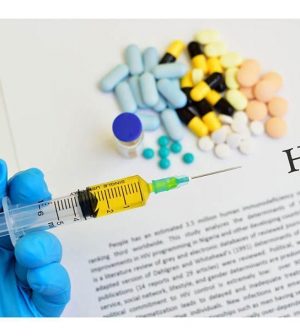- 8 Ways to Increase Dopamine Naturally
- 7 Best Breads for Maintaining Stable Blood Sugar
- Gelatin vs. Collagen: Which is Best for Skin, Nails, and Joints?
- The Long-Term Effects of Daily Turmeric Supplements on Liver Health
- Could Your Grocery Store Meat Be Causing Recurring UTIs?
- Are You Making This Expensive Thermostat Error This Winter?
- Recognizing the Signs of Hypothyroidism
- 10 Strategies to Overcome Insomnia
- Could Artificial Sweeteners Be Aging the Brain Faster?
- Techniques for Soothing Your Nervous System
Another HIV Vaccine Trial Canceled Due to Poor Results

Another trial of an experimental HIV vaccine has been halted after researchers concluded the vaccine provided only limited protection.
The trial in five sub-Saharan African countries was launched in 2017 to assess the Johnson & Johnson HIV vaccine in over 2,000 young women at high risk of HIV infection.
This is the latest in a string of failures for HIV vaccine research.
“I should be used to it by now, but you’re never used to it — you still put your heart and soul into it,” Glenda Gray, trial principal investigator and chair of the South African Medical Research Council, told The New York Times.
Gray has been trying to develop an HIV vaccine for more than 15 years.
Last year, a trial testing a different HIV vaccine in South Africa was stopped because it didn’t provide adequate protection, the Times reported.
The cancellation of the Johnson & Johnson vaccine trial is a “reality check” amid excitement about new vaccine technologies, according to Mitchell Warren, executive director the AIDS prevention and treatment advocacy group AVAC.
“It’s a grand reminder that HIV is a pathogen unlike any other in its complexity,” he told the Times.
About 1.5 million people were infected with HIV worldwide in 2020, and 38 million are living with the infection.
Efforts to develop an HIV vaccine may require entirely new approaches, according to the Times.
For example, Moderna recently announced that it would try to develop an HIV vaccine based on the mRNA platform it used to create its COVID-19 vaccine.
The Johnson & Johnson HIV vaccine relied on an adenovirus that was modified to carry fragments of four HIV subtypes into the body, all in hopes of provoking an immune response that might guard against infection.
Over two years, 63 of 1,109 participants who received the placebo were infected with HIV, compared with 51 of 1,079 participants who received the vaccine — giving the vaccine an efficacy rate of 25 percent.
More information
Visit the U.S. Centers for Disease Control and Prevention for more on HIV.
Source: HealthDay
Copyright © 2026 HealthDay. All rights reserved.










